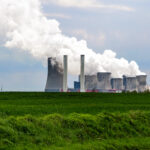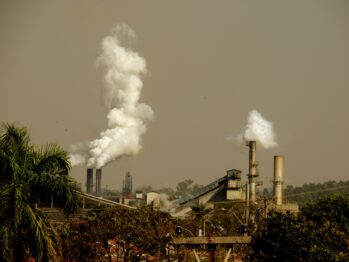By Stephanie Edwards
As climate change ramps up temperatures around the world, it’s not just humans feeling the heat — dairy cows are struggling, too.
A new study, published in Science Advances, suggests that extreme heat can cut milk production by up to 10 percent, even on farms using advanced cooling systems. In one of the most detailed assessments of how high heat affects dairy cows, scientists analyzed data from more than 130,000 cows over 12 years, tracking local weather patterns alongside milk output.
What they found was striking: when wet-bulb temperatures (a combination of heat and humidity) exceeded 78 degrees Fahrenheit, milk production dropped significantly and took over 10 days to recover.
“Climate change will have wide-ranging impacts on what we eat and drink, including that cold glass of milk,” said co-author Eyal Frank, assistant professor at the Harris School of Public Policy, in a press release. “Our study found that extreme heat leads to significant and lasting impacts on milk supply, and even the most high-tech, well-resourced farms are deploying adaptation strategies that may be an insufficient match to climate change.”
















